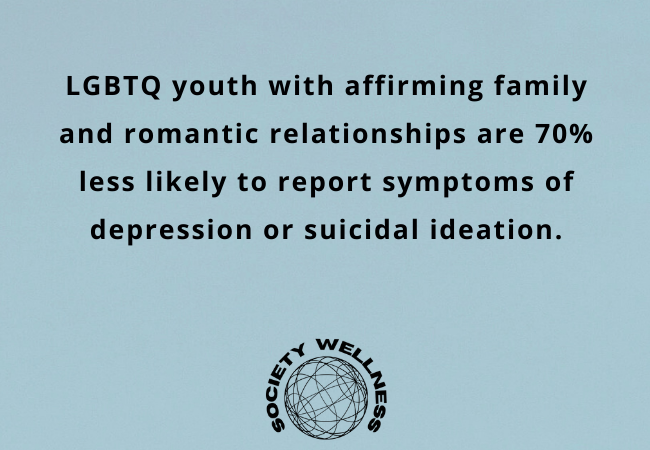Seeking help for your relationship can feel overwhelming—but choosing to attend couples therapy is one of the most powerful acts of love and commitment two people can make. For LGBTQ couples, the decision to enter therapy often carries even more weight, as many fear being misunderstood, judged, or invalidated in traditional counseling settings.
The good news? At LGBTQ Behavioral Health Treatment Center Massachusetts, we offer therapy spaces designed with you in mind—where identity is affirmed, love is never questioned, and both partners are seen, heard, and supported.
Whether you’re new to therapy or considering it for the first time as a couple, this guide will walk you through exactly what to expect during an LGBTQ couples therapy session—from the first appointment to ongoing progress—so you can step into the process with clarity, confidence, and compassion.
Why LGBTQ-Affirming Couples Therapy Matters
LGBTQ couples therapy is not the same as traditional couples counseling. Your relationship may face dynamics that are unique to LGBTQ partnerships, such as:
- Differences in outness or gender expression
- The emotional and physical impacts of transitioning
- Lack of family support or legal protections
- Navigating chosen families
- Religious or cultural rejection
- Past trauma, discrimination, or minority stress
At LGBTQ Behavioral Health Treatment Center Massachusetts, we integrate these lived realities into your care. Our services—including LGBTQ Therapy in Massachusetts, LGBTQ Queer Therapy in Massachusetts, and LGBTQ Couples and Marriage Counseling in Massachusetts—are grounded in affirmation, inclusion, and empathy.
What Are the Goals of LGBTQ Couples Therapy?
No two couples are the same, but some common therapy goals include:
- Improving communication and conflict resolution
- Rebuilding trust after a betrayal
- Supporting a partner through transition
- Addressing identity-related stress in the relationship
- Clarifying relationship structures or boundaries
- Strengthening intimacy and emotional safety
- Navigating external stress (e.g., family pressure, discrimination)
You don’t need to be “on the brink” to benefit. Many couples come in proactively—looking to grow, reconnect, or better support one another during transitions or new life stages.
Common Reasons LGBTQ Couples Seek Therapy
LGBTQ couples seek counseling for many of the same reasons as heterosexual couples, plus unique challenges tied to identity, societal stigma, and family rejection.
Some of the most common reasons include:
-
Communication breakdowns or conflict cycles
-
Gender transition within the relationship
-
Differences in outness or identity exploration
-
Family rejection or pressure
-
Intimacy or sexual compatibility concerns
-
Navigating non-monogamy or relationship agreements
-
Parenting and family planning
-
Healing after betrayal or rupture
Whether you’re in crisis or simply want to deepen your emotional bond, couples therapy offers tools, space, and guidance.
The First Session: Laying the Foundation
A Welcoming, Affirming Space
Your therapist will start by creating an inclusive environment where all genders, pronouns, and relationship structures are respected. You’ll have the opportunity to share your names, pronouns, and anything else that helps you feel seen and respected.
What You’ll Discuss:
- What brought you to therapy
- What challenges you’re facing
- What each partner hopes to achieve
- Any concerns or past experiences with therapy
The therapist may also ask about your history:
- How you met and how your relationship has evolved
- Past or ongoing issues you want to resolve
- Any major life changes (moves, transitions, parenting, etc.)
- Identity factors, such as coming out journeys or dysphoria
This session helps build a baseline of trust, clarify mutual goals, and lay the groundwork for deeper work in future sessions.
Session Structure: What Happens in Ongoing Therapy
Once your initial goals are set, sessions are typically structured around conversation, emotional exploration, and skills-building. Here’s a breakdown:
1. Understanding Relationship Dynamics
Your therapist will guide you through conversations that explore:
- Your communication styles
- Conflict patterns (arguments, shutdowns, avoidance)
- Emotional triggers and unresolved past wounds
- Family-of-origin impacts
- Power dynamics or emotional labor imbalance
This creates awareness of what’s happening underneath your disagreements, so you can work toward healthier interaction patterns.
2. Learning and Practicing Communication Tools
In each session, you’ll learn practical techniques to improve connection, such as:
- “I” statements: expressing needs without blame
- Active listening: hearing without preparing to respond
- Conflict de-escalation strategies
- Compassionate repair: how to apologize and rebuild
These tools help you break out of reactive cycles and move toward responsive, respectful dialogue—even in conflict.
3. Exploring Identity-Related Topics
LGBTQ couples often deal with layers of identity-related tension that can be hard to discuss outside of therapy.
Common topics include:
- Supporting a partner through medical or social transition
- Unequal outness in public or with family
- Body image and dysphoria
- Internalized homophobia, biphobia, or transphobia
- Coping with misgendering or invisibility in public spaces
Your therapist will hold space for each person’s experience without judgment and offer strategies to stay connected through these identity shifts.
4. Navigating Sex, Intimacy, and Vulnerability
Intimacy looks different for every couple—and LGBTQ partners often face unique challenges related to:
- Trauma or past violation
- Body dysphoria
- Low desire or mismatched libidos
- Communication barriers around pleasure and consent
- Healing after infidelity
Therapy offers a nonjudgmental place to explore these topics, redefine your intimate connection, and address pain points openly and safely.
5. Setting Boundaries and Creating Agreements
Many LGBTQ couples engage in non-monogamous, polyamorous, or nontraditional relationships. Therapy helps you:
- Clarify what commitment and fidelity mean to you
- Negotiate boundaries around intimacy, communication, and consent
- Create repair plans for boundary ruptures
- Explore attachment and autonomy
Whether you’re navigating monogamy, an open relationship, or something in between, therapy supports alignment and mutual respect.
6. Managing External Pressures
Your therapist can help you navigate:
- Family rejection or pressure to hide your relationship
- Religious guilt or shame
- Community stigma
- Cultural differences or generational values
These external forces can add stress to your relationship—therapy helps you face them together as a united front.
7. Evaluating Progress Over Time
Throughout your work together, you’ll revisit your initial goals, celebrate wins, and explore areas that need more time or support.
You might also explore:
- Planning for cohabitation, marriage, or parenting
- Navigating long-distance or career changes
- Coping with grief, loss, or trauma

When Deeper Support Is Needed
Sometimes therapy reveals that one or both partners are struggling with more complex mental health needs. That’s when our integrated care model becomes invaluable.
We offer:
LGBTQ PHP Treatment in Massachusetts
- A structured daytime program for individuals experiencing emotional distress, trauma, or severe relationship stress
- Includes individual, group, and couples support when needed
LGBTQ Intensive Outpatient Program in Massachusetts (IOP)
- A flexible, part-time program that provides deeper support while allowing clients to maintain work or school commitments
This ensures that both the individual and the relationship receive the care they need without disruption.
Common Misconceptions About LGBTQ Couples Therapy
Let’s clear up a few myths:
❌ “Therapy means our relationship is failing.”
✅ Truth: Therapy is a sign of commitment—not crisis. Many strong couples attend therapy to prevent bigger problems later.
❌ “The therapist will take sides.”
✅ Truth: Affirming couples therapists are trained to maintain neutrality and help both partners feel equally supported.
❌ “Talking about identity will make things worse.”
✅ Truth: Ignoring identity creates more tension. Therapy provides language and space to discuss identity with empathy and understanding.
Why LGBTQ Behavioral Health Is the Right Place to Start
We are proud to be a leading LGBTQ Behavioral Health Treatment Center in Massachusetts, offering:
- Licensed therapists who are LGBTQ-identified or extensively trained in affirming care
- Deep cultural competency around race, disability, neurodivergence, and intersectionality
- Inclusive support for all relationship models
- The full continuum of care—from outpatient sessions to intensive treatment
Take the First Step Together
LGBTQ couples therapy isn’t about fixing what’s broken—it’s about building what’s possible. If you’re ready to deepen your connection, communicate more clearly, or simply navigate life as a stronger team, therapy can help you get there. Call us today at 888.964.8116, Let’s build a relationship rooted in safety, truth, and growth—together.
FAQ on LGBTQ Couples Therapy Sessions
What happens during an LGBTQ couples therapy session?
Sessions focus on building trust, improving communication, exploring identity dynamics, and navigating external stressors like family rejection or discrimination.
Is LGBTQ couples therapy different from traditional counseling?
Yes. It’s designed to affirm all identities, respect relationship diversity, and address issues unique to LGBTQ couples, such as coming out or gender transition.
What types of issues can we work on in therapy?
Common topics include conflict resolution, intimacy, trust rebuilding, parenting, trauma, non-monogamy, and emotional support during transitions.
Will the therapist take sides?
No. LGBTQ-affirming couples therapists maintain a balanced approach, creating space for both partners to be heard and supported without bias.
Do we need to be in crisis to benefit from therapy?
Not at all. Many LGBTQ couples use therapy proactively to deepen connection, improve communication, and prepare for major life transitions.
Can therapy help us with intimacy or mismatched desire?
Yes. Therapists offer a safe, judgment-free space to discuss sexual and emotional intimacy, helping couples navigate desire, consent, and connection.
What if one of us has mental health issues affecting the relationship?
We offer LGBTQ PHP programs in Massachusetts for deeper individual care that can complement couples therapy and improve overall relationship health.
Will our identities be respected in therapy?
Absolutely. Our therapists use inclusive language, affirm pronouns, and honor all relationship models, including polyamorous, trans, and nonbinary partnerships.

